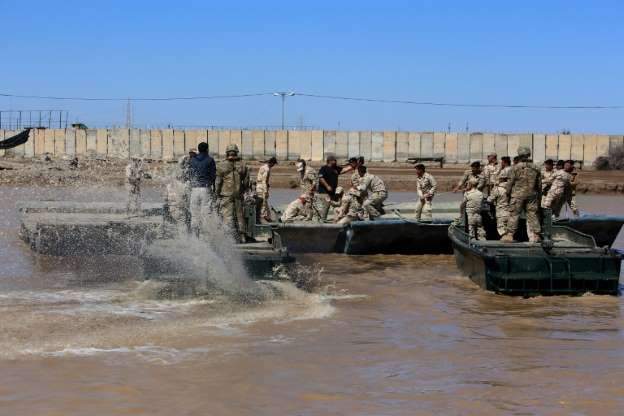Iraq resumes joint ops with US-led coalition

Iraq's security forces have resumed operations with the US-led coalition to fight Islamic State group sleeper cells, the global alliance said, after tensions led to a more than three-week pause.
The announcement came as Iraqi politicians faced a Saturday deadline to pick a successor to caretaker prime minister Adel Abdel Mahdi, who resigned in December as unprecedented anti-government protests rocked the country.
The US-led coalition announced on January 5 that it was freezing its anti-IS campaign in Iraq for security reasons after a spate of rocket attacks on bases where its forces are stationed.
That same day, Iraq's parliament voted in favour of ousting all foreign troops from the country after a US air strike on Baghdad that killed top Iraqi and Iranian commanders.
The coalition has provided training and air support for Iraqi forces since 2014 to help them beat IS, but the pause meant it could not carry out operations or strikes.
On Thursday, the coalition's spokesman Myles Caggins confirmed the pause was over.
"We're resuming our
operations with the Iraqi security forces to defeat IS remnants," Caggins told AFP.
A source from the Iraqi military also confirmed that joint operations were back underway and said a formal announcement would be made shortly.
The January 3 strike that killed Iranian general Qasem Soleimani and Iraqi commander Abu Mahdi al-Muhandis had infuriated Iraq, which considered it both a breach of its sovereignty and of the coalition's anti-IS mandate.
The parliamentary vote set off a flurry of talks both within the Iraqi government and with coalition countries to review the relationship.
- 'Paralysis' over PM -
One possibility, Iraqi and Western officials said, would be for NATO to take over some coalition tasks. Iraqi and NATO officials met in Amman Wednesday to discuss options.
But Iraq's government is in disarray after four months of protests that have swept Baghdad and the Shiite-majority south, demanding a new premier and snap elections.
Current prime minister Abdel Mahdi has stayed on since his resignation in a caretaker role as political factions have struggled to find a replacement.
Any contender would need the approval not only of the political class but also of Iraq's Shiite religious authority, bitter rivals Iran and the US, and the protest movement.
President Barham Saleh on Wednesday sent a letter to Iraq's deeply-divided parliament, giving it until Saturday to nominate a new premier after months of paralysis.
Otherwise, he said, he would name someone unilaterally.
That sent the parties into high-stakes talks on Thursday.
"President Barham Saleh is hosting the various political blocs to try to find a consensus candidate," a source from his office told AFP.
As the clock ticked, the United Nations' top official in Iraq also ramped up pressure.
"It is high time to restore confidence by setting aside partisanship, acting in the interest of the country and its people," said Jeanine Hennis-Plasschaert in a statement.
"Iraq cannot afford the ongoing violent oppression nor the political and economic paralysis."
- Uncharted waters -
According to Iraq's constitution, parliament's largest bloc must nominate a prime minister within 15 days of legislative elections.
The candidate is then tasked by the president with forming a government within one month.
But Iraq is in uncharted waters, as the constitution makes no provisions for the premier's resignation and the 15-day period since Abdel Mahdi stepped down has long expired.
It is also unclear if the constitution allows the president to name his own candidate in this situation.
Saleh's letter sent factions into last-minute crisis talks, with one political figure saying they were "tense".
"They are divided over the old names that have been circulating in recent months and are even coming up with new names now," said the politician.
Possible successors that have been floated include an adviser to the president, an intelligence chief, political operatives and former top officials, among others.
One reason for the continued stalemate, a top government official told AFP, is the absence of Soleimani and Muhandis, who had both often taken the lead in brokering political agreements among parties.
Photo: © SABAH ARAR
This file photo taken in 2017 shows international coalition forces and Iraqi soldiers installing a floating bridge at the Taji camp, north of Baghdad, during a training session




